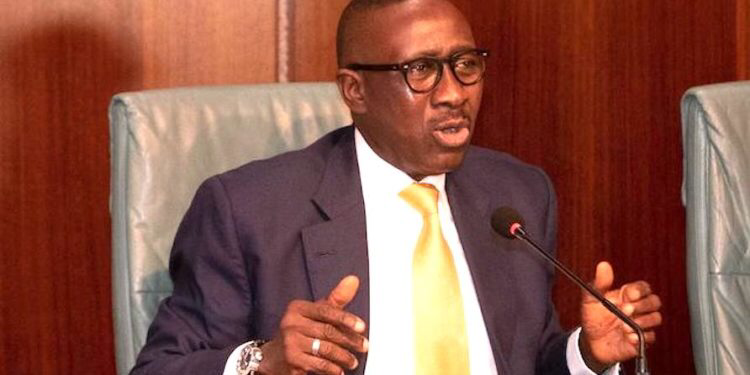The National Security Adviser (NSA), Maj. Gen. Babagana Monguno (rtd) yesterday said the federal government had uncovered about 54,000 fraudulent payroll entries in its Integrated Personnel and Payroll Information System (IPPIS) as a result of whistle-blowing.
He disclosed this at the National Policy Dialogue on Corruption and Security organised by the Independent Corrupt Practices and Other Related Offences Commission (ICPC) yesterday in Abuja.
Monguno, who attributed the discovery to the expansion of the coverage of IPPIS against stiff opposition from some quarters, also linked the deployment of the Bank Verification Number (BVN) to validate the government’s stance on the payment platform to the detection, saying the implementation of the Treasury Single Account (TSA) in more than 90 per cent of all Ministries, Departments and Agencies (MDAs) of the government had resulted in the consolidation of more than 70,000 bank accounts previously spread across deposit money banks in the country, leading to the monthly saving of about N4 billion in bank charges.
Monguno said corruption had hindered government’s ability to offer better life for its citizens and this has affected the country negatively.
At the event convened to discuss the current security challenges and how corruption is fueling the problems in the country, the Independent Corrupt Practices and Other Related Offences Commission (ICPC) and other anti-corruption stakeholders called for the review of public procurement policies to reduce corrupt practices in the country.
Speaking at the event, the ICPC chairman, Bolaji Owasanoye, said the commission’s research and findings showed that public sector corruption, directly and indirectly, enables insecurity and can sometimes complement it.
On a particular focus, the ICPC chairman while quoting data from the Centre for Democracy and Development (CDD) said about $15 billion had been squandered through fraudulent arms procurement deals in the last 20 years in the country.
He said: “Recently, ICPC arrested a military contractor that received over a period of less than 10 years cumulative sum of about N6 billion from the Nigerian Army in suspicious circumstances and in violation of extant legislation.
“Another case under investigation is theft of part of the special intervention fund approved for security operations by some civil servants in the line ministry who transferred about N1 billion to four Shell companies.
“A special investigative team under the leadership of the NSA and ICPC recovered some of the diverted assets, including state of the art building located in Abuja and over N220 million cash. Investigation on this matter is still ongoing.”
Also speaking, senate president, Ahmed Lawan, said; “The National Assembly while looking into the possibility of unmasking the perpetrators of insecurity in Nigeria, realised the need for an anti-corruption law to stop illicit financial flows suspected to be funding routes for insecurity in Nigeria. The 8th Assembly passed the Nigerian Financial Intelligence Unit (NFIU) Bill, which is one of the major anti-corruption laws that saved the country from being expelled from the global body of the Egmont Group.
“In the same vein, the 9th Assembly, working closely with security and law enforcement agencies to further strengthen their capacity to withstand unscrupulous elements involved in criminal and terrorist activities against the state, passed three bills aimed at combating money laundering, terrorist financing and the proceeds of crime. These three bills are in tandem with this administration’s commitment to fight corruption and curb insurgency in the country.”

